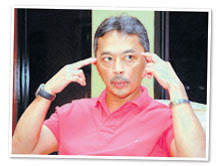There is no denying that international hockey will be incomplete without India and Pakistan.
However, according to International Hockey Federation (FIH) coaching manager Tayyab Ikram, both the countries cannot rise to the top unless they get rid of the ad-hocism and adopt a structured approach.
Ikram, the secretary of the High Performance Department and a Coaching Director of FIH, said the two nations “must stop dreaming” and deal with ground realities to strengthen the roots of the sport.
“We have to adopt a different approach for India because people here are hungry for hockey. But potential, talent and participation-wise, it is not reflecting in the world rankings,” Ikram said here on Thursday.
Ikram, nevertheless, thinks that India should not mindlessly ape the training methods of successful European countries. “A player comes through a certain system. We cannot overload his mind with so many things. We got to create a balance,” he said.
The man with three decades of coaching experience stressed on the thinking aspect of the game and said the Indian players could learn a few things from the Europeans. “They (the Europeans) are better decision makers, so they know better management,” he said.
Ikram, who originally belonged to Lahore (Pakistan), said hockey must make improvements in terms of quality.
“The education system (in hockey) must be updated. India can take the high-performance package and introduce it….Hockey India (HI), the Sports Authority of India (SAI) and the Sports Ministry must think how many hours of quality coaching they are giving (to the players),” he said.
The FIH Master Coach is here to conduct a coaches' course on the sidelines of the World Cup. Altogether 46 coaches from 25 countries are participating in the programme.
The participants: Rimoldi Jorgelina (Arg), Elizabeth Ljeoma (Nig), Solomon Casoojee (Aus), James Young (Aus/Lit), Berandai Dadong (Bru), Tjerk van Herwaarden (USA), Ronald Stein Leon (Chile), Kim Changback (Chn), Hany Hamouda, Hisham Hamouda (Egy), Hector Rocky Smith (Fij), Philip Fernandes (Guy), Jamilon Mulders, Jens Lueninghoener (Ger), Akbar Ali, Arif Ali (HK), Somesh H. Sandeep, Sabu Varkey, Y.S. Chauhan, Inderjit Singh Gill, K. Singh Ripudaman, Mukul Pandey, P.V. Patel, Ajay Kumar Bansal (Ind), Christine Bartley, Michelle Holt (Jam), Siegfried Aikman, Akira Takahashi (Jpn), Seung-Jin Yoo (Kor), Tai Beng Hai, Dharma Raj Kanniah, Vivekanandan Ramaiah (Mas), Robert Hantjes, Eric Caspar Verboom (Netherlands), Nedeem Bhatti, Mohd. Junaid Khawaja (Pak), Russell Garcia (Sco), Michael Kinnen (Bel), Juan Manuel Mas Oritz (Sin), Adrian Carolan (SA), Rohan Dissanayake, Leelananda Ittapanaga (SL), Sameer Hussain Syed (Tha), Mohd. Abdullah Al Batrani (Omn), Kwandwane Browne, Anthony Marcano (Tri).







